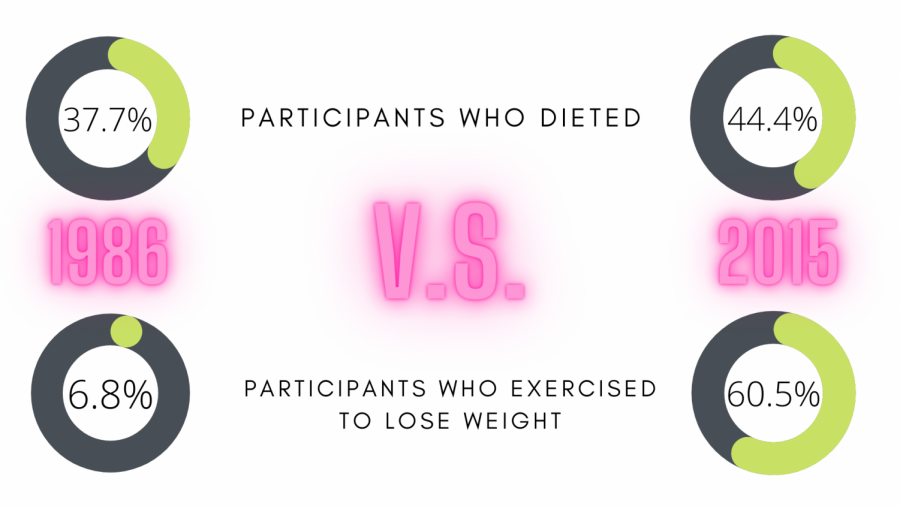“Perfect Body” Ideal Erodes Self-Image
Over the last twenty years, students’ body images have changed the way they eat, diet, and exercise. While the increase in dieting was smaller, the exercise increase illustrated the need for a specific type of body.
February 19, 2021
Everywhere students look today there are people telling us how to dress, what we should look like, and what our bodies should like in order to be “perfect.” The obsession with perfectionism starts when children begin to form their opinions and personalities, influenced by family, parents, peers, media, among others.
The stigma of the “perfect body type” goes so deep that 44.4% of girls are concerned by their weight, according to a recent study published in Physicians Weekly. Negative body image or how people see themselves can lead to more serious problems such as anxiety, depression, or eating disorders. Every single day, students face this struggle and don’t know what to do, how to cope, and that they are not alone.
Different circumstances and environments shape our opinions of others and ourselves. Junior and VDT member Katie Ridings described predominant outlooks.
“Society has a set mindset of what they think a teen body should look like and that makes every teen want to look like that. I think that most of the creators or famous people have the society’s mindset of a ‘perfect’ body, and that makes everyone see them in the media and want to look like them,” explained Ridings.
Athletes are also affected by these expectations equally. Senior Cora Hautekeete discussed the pressure athletes face.
“[Athletes] feel in order to perform in their sport they need to be skinny and muscular at the same time or they need to be a certain weight,” Hautekeete said.
This unrealistic expectation can lead to disordered eating or a bad relationship with food. “A lot of female athletes suffer from disordered eating…they might not have an actual eating disorder but their relationship with food is not good…they’re just not eating correctly,” stated Hautekeete.
Students can start a change toward positive body image, however. Hautekeete suggested that “classmates could keep comments to themselves or just be more supportive of each other, not jealous or negative.”
Ridings added, “People that want to get the ‘perfect’ body will do anything to get it, and not eating or eating too much is part of that.”
Positive body image is “when you are happy in your own body and do not feel the need to look like anybody else,” stated Ridings. By supporting each other, students can change negative perceptions of themselves.


